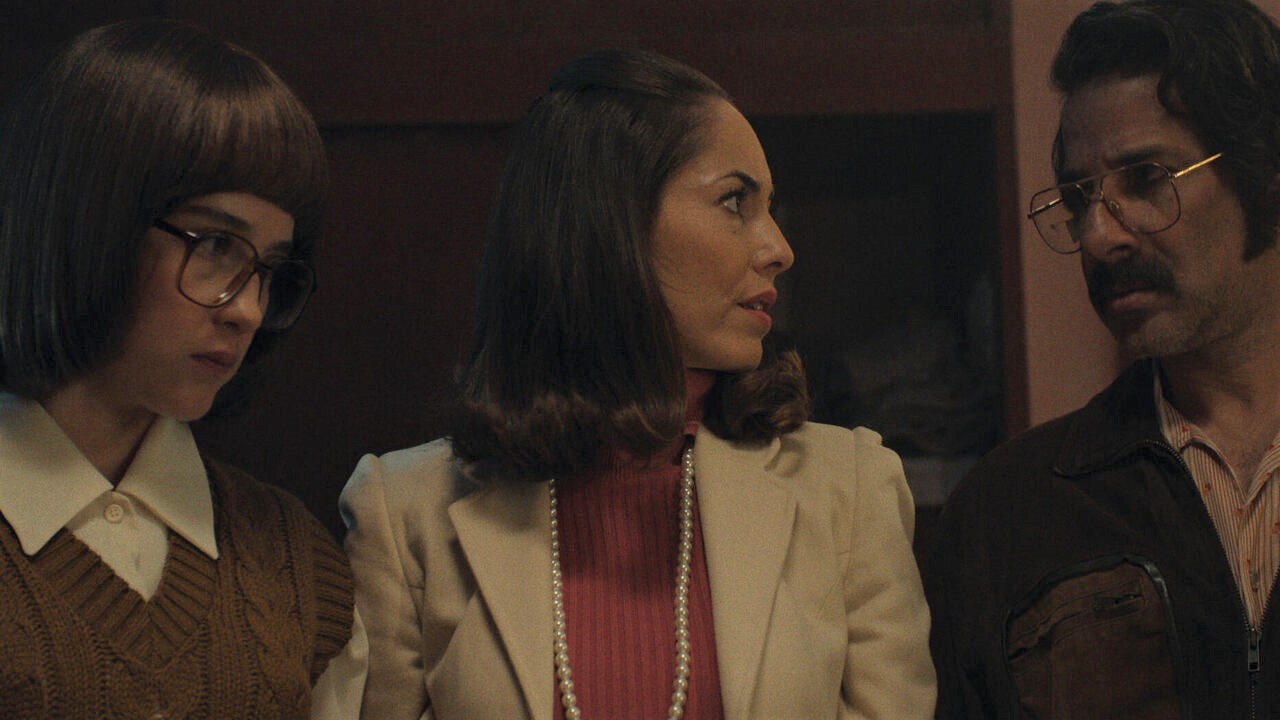
“Rosa,” the eighth episode of Women in Blue, hits a poignant balance between detective work and emotional revelation, a hallmark of the show’s narrative style. In this episode, María and Ángeles probe deeper into Rosa’s past, hoping to uncover crucial information about the killer's early days. What makes the investigation compelling is how the episode shifts focus from just the crime itself to the deeper psychological trauma experienced by the characters involved. Through the adopted son of Rosa, we get a glimpse of how his mother’s tragic fate continues to shape his life, adding emotional weight to the detective work.
One of the most striking features of this episode is its ability to weave personal histories into the broader narrative of the investigation. As María and Ángeles speak to Rosa's son, it’s not just about piecing together evidence; it’s about unraveling a legacy of pain, grief, and unanswered questions. The interview scenes are tense, not in the way of a high-octane thriller, but in the quiet, simmering way that only deeply personal stories can provide. The show doesn't rush through the details—it takes its time, allowing the audience to sit with the uncomfortable emotions that rise to the surface. The scene where the son recalls his mother’s gradual descent into fear and isolation is a gut punch, not because of overt dramatization, but because of its quiet authenticity.
This is where the show shines—Women in Blue excels at making the personal feel universal, and "Rosa" is no different. The tension doesn’t come from rapid plot twists or shootouts but from the slow, deliberate uncovering of human vulnerability. Rosa’s story, though tragic, is treated with respect and a somber tone that feels fitting for the nature of the crime.
However, the slower pacing might be a drawback for some. At 44 minutes, the episode takes its time to build emotional arcs, and while that adds to the depth, it can also make the viewing experience feel dragged out. The emotional weight is heavy, and at times it can feel like the show is repeating beats we've seen before—another family torn apart by a killer, another person haunted by the past. While that repetition underscores the themes of trauma and memory, it could have been streamlined a bit to keep the momentum going.
What helps alleviate some of the slower moments, though, is the strong performance from the guest actors, particularly the actor playing Rosa’s son. His portrayal of a man torn between wanting to forget and needing to confront the truth gives the episode much of its emotional punch. His scenes with Ángeles are especially memorable, as they balance both the procedural aspect of the show and the more human, emotional stakes involved. Ángeles, as always, is a steady presence, her quiet empathy grounding the episode’s more melodramatic moments.
Visually, "Rosa" continues with the show’s gritty, muted aesthetic. The urban backdrop of Mexico serves as more than just a setting—it feels like an active participant in the story, its streets, and shadows holding secrets just as deeply as the characters do. There’s consistent attention to detail, from the subtle shifts in lighting during the interrogation scenes to the way the camera lingers on Rosa’s son’s face, capturing every nuance of his grief and confusion. That said, some viewers might find the cinematography a little too restrained.
While the show’s gritty realism is usually a strength, there are moments in "Rosa" where it could have benefited from a slightly more dynamic approach. The camera work, while competent, doesn’t always capitalize on the emotional intensity of the scenes. A bit more visual flair—perhaps through more experimental angles or lighting choices—could have added an extra layer to the already strong narrative.
Thematically, the episode continues to explore the concept of how the past can haunt the present. María’s own backstory becomes increasingly relevant, as it’s clear that she, too, is grappling with unresolved issues from her past. This parallel between María and the victims she encounters gives the show a thematic richness that elevates it above the typical procedural. It’s not just about catching a killer—it’s about how trauma ripples through time, affecting everyone it touches, often in unexpected ways.
One of the more subtle successes of this episode is how it addresses the idea of victimhood. Rosa is not just seen as another victim in a string of murders; through the lens of her adopted son’s story, she becomes a fully realized person, with a life and struggles that extend far beyond her tragic end. This focus on the victims as people, rather than plot points, is what gives Women in Blue its emotional resonance.
In conclusion, episode 8 of Women in Blue, “Rosa,” is a strong, emotionally charged installment that balances its procedural roots with deeply personal storytelling. While its slower pace and restrained visuals may not appeal to everyone, the episode's thematic depth and powerful performances make it a standout. It’s a somber, contemplative piece that fits well within the larger narrative of the season, offering both answers and more questions as María and Ángeles edge closer to catching the killer.
Final Score - [6.5/10]
Hi Everyone, after a due consideration, we have decided that we will be open for donations to help us in managing our website. We will be greatful for any kind of amount we receive. Thanks!
— Midgard Times 🎬 (@Moviesr_net) January 4, 2026
PayPal- [email protected] pic.twitter.com/DlNNz5Npm5
Get all latest content delivered to your email a few times a month.
Bringing Pop Culture News from Every Realm, Get All the Latest Movie, TV News, Reviews & Trailers
Got Any questions? Drop an email to [email protected]